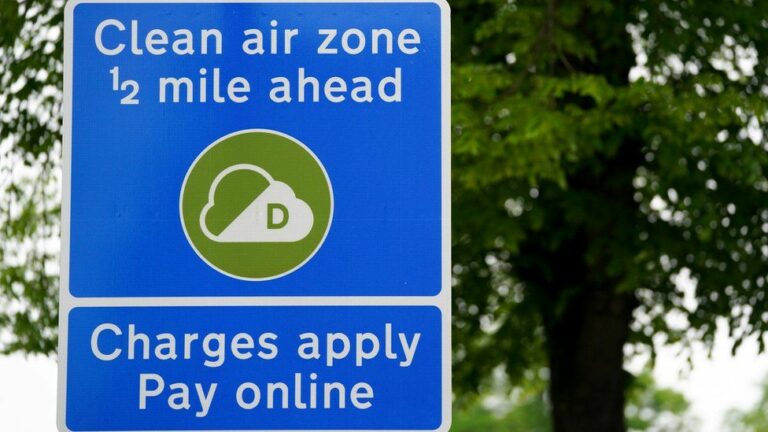Britain’s High Streets are changing, not dying. That’s the team’s verdict at Coversure Castle Donington, one of the UK’s leading independent shop insurance brokers. In this blog, the team look at the UK’s retail scene and ask if the transformation that Derby’s High Street has seen could provide a model for others to follow.
Derby’s High Street: A case study for change
Life has not been easy for retailers recently. As one of the UK’s leading retail and shop insurance providers, we’ve seen clients go and others asking us to help them find cheaper shop insurance as they battle to survive. In common with the rest of the UK, the East Midlands has seen a succession of big-name brands disappear from our high streets. In 2023 Derby saw the following stores close their doors for the final time:
- Paperchase
- Wilko
- Ted Baker
- Lapel Clothing
- BUK-TAR
- Sound Bites
- George’s Tradition
- Finewood Studios
From national chains to independents, from takeaways to fashion brands, it seems that no part of the retail sector has been safe. Derby now has 80 empty shops and the east midlands as a whole has nearly 15% of its retail outlets lying empty. It’s tough out there. The pandemic accelerated shoppers’ move to online which has seen the value of UK ecommerce reach £200bn for the first time. It’s now predicted to reach a staggering £600bn by 2029 (source ONS). The problem has been compounded by the cost-of-living crisis, inflation, high rents and business rates. Business rates have been a particular problem. Despite new legislation in the form of The Non-Domestic Rating Bill which was introduced in March 2023 and was designed to help struggling retailers, the business rate burden is increasing. While shops pay an average of £2.91 in business rates for every £100 they earn, online retailers pay just 34p (source: Altus Group). With such a competitive advantage on offer, it’s not surprising that many retailers have abandoned the High Street in favour of an online-only offering.
High streets reinvented: Becoming a ‘destination’
Despite the current gloom, many are hopeful that our town and city centres are set for a comeback. After years of debate and experimentation, it seems that for High Streets to thrive they need reinventing and Derby is a great example of this. In 2007 Derby’s Cathedral Quarter was created with the explicit aim of creating a leisure, retail, and dining destination. By working together Cathedral Quarter, Derby City Council and Historic England have seen nearly 100 properties restored and the birth of a thriving café, bar, retail, and restaurant scene. It’s now home to over 500 businesses and has done wonders for the local economy. While not all high streets can boast a magnificent sixteenth-century cathedral, they can – and must – take an approach based on unified local authority action by creating a diverse, unified offering.
The Cathedral Quarter planners got the details right. They improved the look and feel of the public spaces with new street furniture, provided paving to create a café promenade feel and improved parking facilities. Crucially they also addressed concerns over crime and anti-social behaviour by introducing the Cathedral Quarter Rangers. The Rangers help visitors, report and deal with anti-social behaviour and generally make the area feel safer and more welcoming. When trying to attract visitors – particularly families – having a reputation for safety and security is key.
Once upon a time, people came into city centres to shop. These days they’re more likely to come in to eat, see a film, drink and shop. To become a ‘destination’ high streets need to offer everything in one place, and the greater the level of diversity the better.
‘Reinvention is the name of the game. Retailers need to offer experiences that online shops can’t, and local authorities and planners need to make High Streets destinations. As we’ve seen in Derby, if you bring a mix of retail outlets – from shops to bars to restaurants – into one place and make it safe and easy to access, people will flock back.’
Darren Davis, a shop insurance specialist at Coversure Castle Donington
A Chain of independent shops
One of the sea changes we saw in retail from the 1980s onwards was the emergence and dominance of chains. Our high streets were transformed from being comprised of small independent businesses to big chains. At the time this made a lot of sense. A BHS, Mothercare, or Debenhams with their large range of goods and in one large store could draw in plenty of custom. The problem was that high streets became dependent on them and when they failed, they left gaping holes that were hard to fill.
What the Cathedral Quarter has tried to do is balance the big names with the independents. While they managed to attract famous brands including White Stuff, TK Maxx and Dr Martens, they’ve catered for the small independents too. This has been a shrewd move. A recent survey by Forbes revealed that 47% of UK shoppers prefer to shop with independent stores as they feel they get better service and that it helps protect the local economy. Independent businesses also offer specialist services that may require advice or carry stock that’s hard to find elsewhere, both of which are big draws for shoppers.
Government help on the way?
All the big political parties have pledged to improve the state of our high streets. The Labour Party announced plans to tackle anti-social behaviour by putting 13,000 police and community support officers on duty, replacing business rates and creating banking hubs. The Conservatives will look to relax licensing laws and support more retail apprenticeships. While election pledges need to be taken with a pinch of salt, it’s good to see that they are acknowledging the problem. As we have said, business rates is a key issue and with all sides saying they will (finally) do something about them, that alone should give retailers reason for optimism.
In the meantime, a private member’s bill, the High Streets (Designation, Review and Improvement Plan Bill) should become law later this year. It will require local authorities in England to publish an improvement plan setting out proposals for the preservation and enhancement of designated high streets. Local authorities would be required to review these plans every five years and to consider them when exercising planning functions. Again, this shows they are taking the issue seriously.
Britain’s high streets: A bright future?
Change is good but rarely painless. That’s certainly been the experience of the UK’s high streets and retailers. The past few years have been hard but if local authorities, Business Improvement Districts and business owners work together, then there’s no reason why the future of Britain’s high streets can’t be bright. Derby’s Cathedral Quarter is a shining example of the success that can be achieved with the right plan. To survive and thrive they need to diversify their offering and become more about a lifestyle than just shopping. Change is coming, and it could be great for us all.
Like some shop insurance help?
If you’d like some help getting the right shop insurance, please get in touch with Coversure Castle Donington. As one of the UK’s leading independent shop insurance brokers, we can help you get the protection your business needs. You can call us on 01332 320540 or email Coversure Castle Donington.





